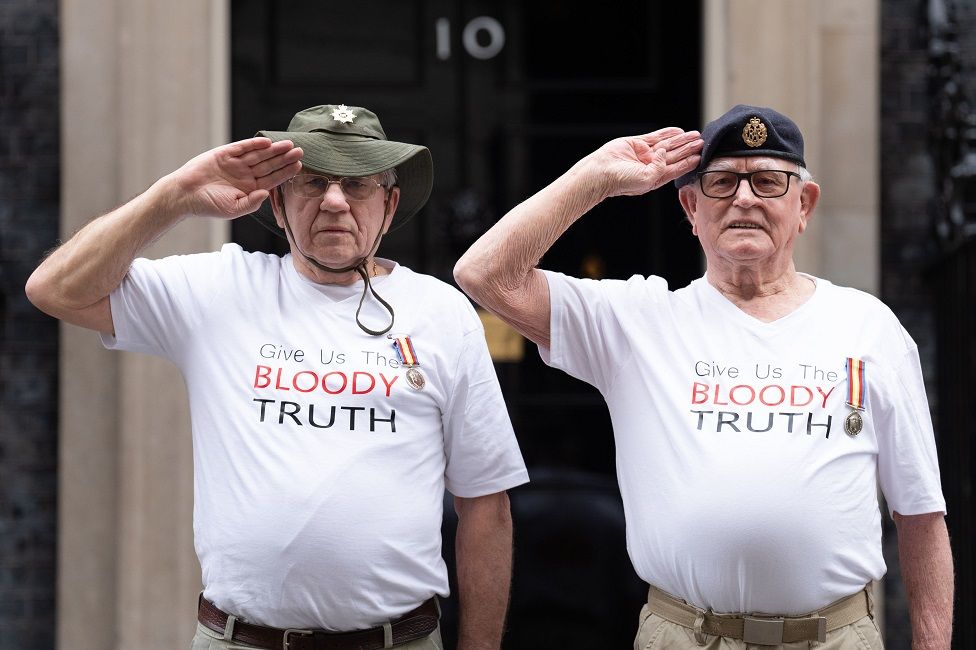Nuclear test veterans demand compensation and medical records access
- Published

Veterans exposed to radiation during British nuclear tests are calling for the government to create a "special tribunal" to oversee compensation.
The group, who say their lives have been blighted by ill health as a result of the tests, also want access to their missing military medical records.
The Ministry of Defence (MoD) says no information is withheld from veterans.
But on Tuesday it was threatened with legal proceedings by alleged victims and their families.
Former military personnel and their families served a "letter before action" on the MoD and handed a petition into Downing Street earlier.
Veterans and their families developed cancer, heart problems and even lost babies after the tests - and their children have been born with obvious disabilities, the group claims.
The campaigners have called on the government to establish a "special tribunal" that would investigate, compensate and commemorate alleged victims of the nuclear tests, which took place between 1952 and 1967 in Australia and the South Pacific.
The government is under pressure to act quickly because many of the claimants are now getting older.
The group is demanding access to blood and urine samples taken during the Cold War weapons trials.
They say are currently unable to access their records because the samples have been reclassified as "scientific data" and placed at the MoD's Atomic Weapons Establishment research facility.
But MoD sources say the archives at the facility have been searched and do not contain the medical records in question.
Radioactive shrapnel
Terry Quinlan, who served in the Royal Army Service Corps on Christmas Island in 1958, told the BBC he had developed cataracts, hearing loss and heart problems following his exposure to the nuclear bomb blasts.
Doctors also discovered potentially radioactive shrapnel embedded in his chest during a triple heart bypass, the 85-year-old added.
"It could have been the radiation from the shrapnel that caused [the] heart disease," Mr Quinlan said.
Tumours "I could rest my arms on" and "over a dozen miscarriages"
Immediately after leaving the island, he says he developed two large tumours on the side of his torso. "I could rest my arm on them," Mr Quinlan said.
And fellow campaigner Brian Unthank, who served as a cook on Christmas Island from 1957, said he had had 90 skin cancers removed. "I lost all my teeth at the age of 20," he explained.
Mr Unthank said his first wife had "over a dozen major miscarriages" and his children and grandchildren had been born with or developed a range of serious illnesses, including melanoma and "skeletal problems and internal problems".
This is the latest stage in a long-running campaign to compensate alleged victims of the nuclear tests.
The group also claims they have struggled to access war pensions on the basis of radiation-related injury because their military medical files were edited to remove all records from their time at the tests.
An MoD spokesperson said they were grateful to all service personnel who participated in the British nuclear testing programme.
"Nuclear test veterans who believe they have suffered ill health due to service have the right to apply for no-fault compensation under the War Pensions Scheme", they said.
"It remains the case that no information is withheld from veterans and any medical records taken either before, during or after participation in the UK nuclear weapon tests are held in individual military medical records in the government's archives, which can be accessed on request."
Related Topics
- Published28 July 2023
- Published20 September 2023
- Published3 October 2022